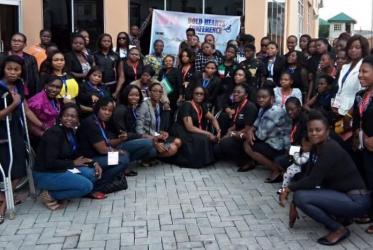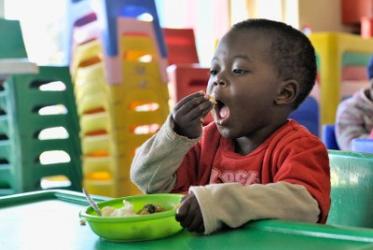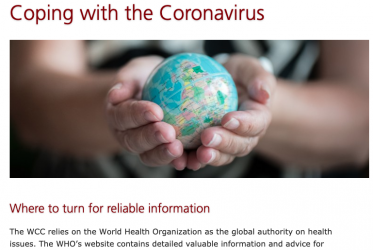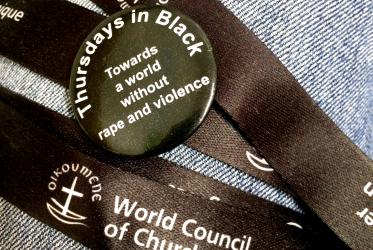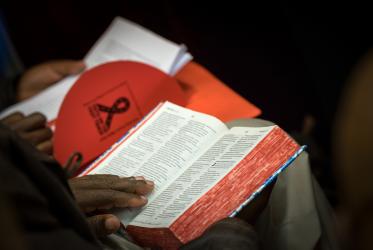Displaying 101 - 120 of 169
G7 must address famine
22 May 2017
Applications open for WCC Eco-School
10 May 2017
Youth engagement fundamental to HIV response
18 April 2017
UN discussion focuses on women, HIV and property rights
21 March 2017
Bible study gives hope as youth reflect on HIV
02 November 2016
Zambia: “On HIV, we do not compete. We work together.”
20 October 2016
New videos help congregations hasten HIV response
20 October 2016


